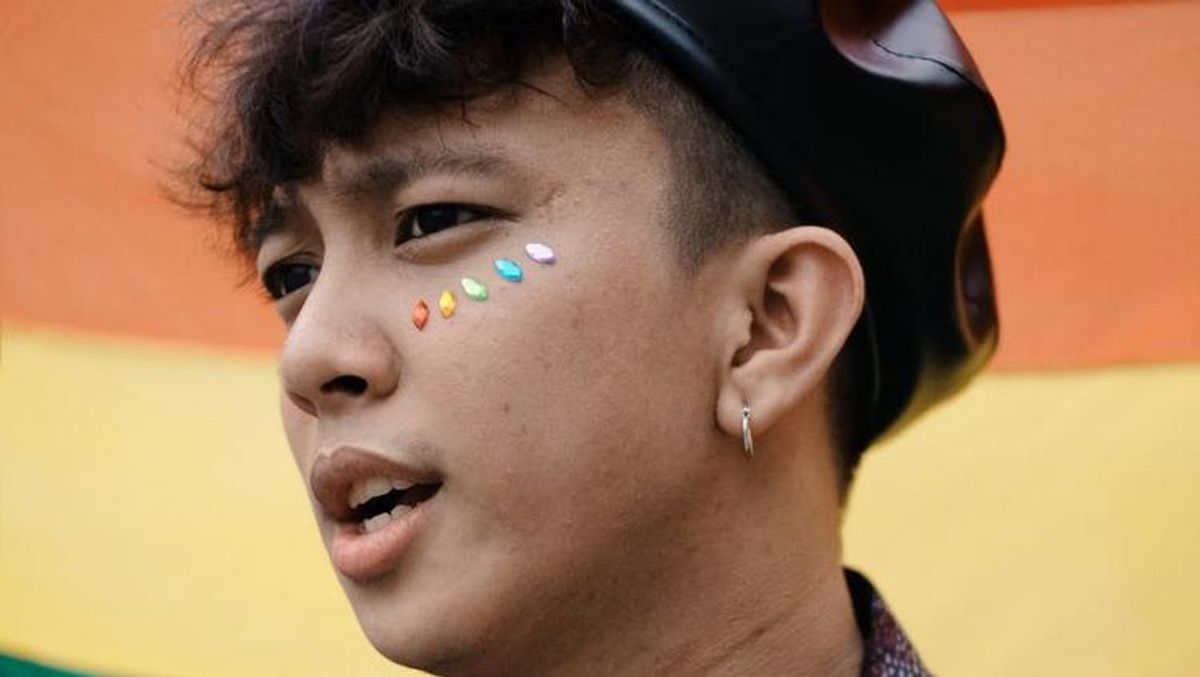News
'Queer' Moniker Finds Favor Among the Young and Nonbinary

Young people may perceive "queer" as a more fluid identity than gay or lesbian, say researchers at the Williams Institute.
January 28 2020 8:41 PM EST
May 31 2023 6:27 PM EST
trudestress
By continuing to use our site, you agree to our Private Policy and Terms of Use.

Young people may perceive "queer" as a more fluid identity than gay or lesbian, say researchers at the Williams Institute.
Young adults, cisgender women, and genderqueer or nonbinary people have embraced the term "queer" as their identifier in greater proportions than the LGBTQ community as a whole, according to a new study.
Six percent of sexual minority adults in the U.S. chose "queer" to describe their identity in the study conducted by the Williams Institute, a think tank on LGBTQ issues and the law at the University of California, Los Angeles, School of Law. It was the first study to examine queer identity in a nationally representative sample.
Those who identify as queer, researchers found, are overwhelmingly cisgender women or genderqueer/nonbinary; they are also younger and more highly educated than other sexual minorities. Eighty-three percent of those identifying as queer were assigned female at birth. Seventy-six percent of queer people were age 18-25.
An estimated 56 percent of queer people are cisgender women and 10 percent are cisgender males. Thirty-four percent of queer people identify as genderqueer or nonbinary, including 27 percent who were assigned female at birth and 7 percent assigned male at birth. Most queer cisgender women reported attraction to both men and women, as did almost half of queer cisgender men. Queer cisgender women were substantially more likely than women of all other sexual minority groups to have had transgender sexual partners -- either transgender men or transgender women.
"We find in this study that queer individuals make up a sizable proportion of sexual minorities, who are distinct in a number of important ways from other sexual minority people, both in terms of demographic characteristics and sexuality, and across gender identity," lead author Shoshana K. Goldberg, a research consultant at the Williams Institute," said in a press release. "Additional research is needed to fully understand this population."
"The term 'queer' has a long history with different connotations for sexual minorities," added another of the study's authors, Ilan H. Meyer, distinguished senior scholar of public policy at the Williams Institute. "Some older people learned it as a derogatory term, but later it was claimed by academics as a critical term and field of study, and some young people may perceive it as an identity that is more fluid than 'lesbian' and 'gay.' Queer identity seems to represent greater openness to partners of all gender identities."
Still, "queer" is a less popular identifier than lesbian, gay, or bisexual. The researchers found that among sexual minorities, 50 percent identify as lesbian/gay and 41 percent as bisexual, while 7 percent use another identifier, such as pansexual.
The study appears in the journal Psychology of Sexual Orientation and Gender Diversity. It is part of the "Generations" study, the first long-term, five-year study to examine health and well-being across three generations of lesbians, gay men, and bisexuals, supported by the National Institute of Child Health and Human Development.